Mixed reactions to WHO meat-cancer research
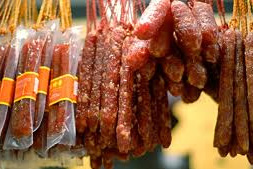
As might have been expected, the recent publication by the World Health Organization (WHO) that stated that processed meat causes cancer has evoked a wide range of different opinions.
The report, released by the WHO’s International Agency for Research on Cancer (IARC), classified processed meat in the category ‘carcinogenic to humans’, whereas consumption of red meat was ‘probably carcinogenic to humans’.
NPPC: “Take it with a grain of salt”
Immediately after the breaking of the news, the US National Pork Producers Council (NPPC) already replied, trying to put things into perspective.
Dr Ron Prestage, NPPC president, was quoted to say: “You know, my mother used to say, ‘Everything in moderation.’ She was a very smart woman, and the smart people out there know you don’t eat a pound of anything every day. So take this IARC report with a grain of salt, but not too much salt because that would be bad for you.”
USDA: Studies have limitations
The NPPC also pointed to a review by the US Department of Agriculture’s Agricultural Research Service (ARS) from May 2015.
ARS author David Klurfeld wrote: “Most observational studies report small, increased relative risks [of cancer]. However, there are many limitations of such studies, including inability to accurately estimate intake, lack of pre-specified hypotheses, multiple comparisons, and confounding from many factors – including body weight, fruit/vegetable intake, physical activity, smoking, and alcohol – that correlate significantly either positively or negatively with meat intake and limit the reliability of conclusions from these studies.”
“Risk of cancer, not increased risk of cancer”
Prof Ellen Kampman at Wageningen University, the Netherlands explained the meaning of the classification. She told Dutch daily De Volkskrant that processed meat has now been categorised with products for which strong proof is available for a risk of cancer. She said, “Classification, however, does not say anything about the height of this risk. It does not mean that chances for cancer are as large as when smoking.”
Prof Kampman indicated to be pleased to have these sides of processed and red meat made clear. Earlier studies were already pointing to limiting both processed and red meat consumption.
France: No panic
French minister of agriculture, Stéphane Le Foll, reacted, “Consumers have no reason whatsoever to panic about meat. If you consume too much, you might get cancer, but that we knew already. Surely you can continue to eat meat and meat products, but like with everything in life, do this in moderation.”
The French national pork federation (FNP) moaned about the timing of the report. Its chairman Paul Auffray said, “Just at the moment when the animal husbandry in our country – as well as elsewhere in Europe – is in a deep crisis, the WHO launches its negative verdict, which could prove to be harmful to consumer confidence.”
UK: Don’t forget the background
Jim McLaren, chairman of Quality Meat Scotland (QMS), stated in a press release, “It is equally important to consider the background to this report. The IARC has looked at over 900 substances since 1971 and decided that all, apart from one, is at least capable of causing cancer in certain circumstances. These substances include such diverse products as coffee, paint, hairdressing products and talcum powder.”
He continued, “IARC’s findings suggest that eating 50 g of processed meat brings a small increase in risk. However average consumption in the UK is just 17 g per day so people would have to eat three times their current level to increase their risk.”
He also pointed out that the report clearly recognises the nutritional benefits of eating red meat.
AHDB Pork: Not as dangerous as smoking
This message was also voiced by the UK’s Agriculture and Horticulture Development Board.
Maureen Strong, AHDB’s nutrition manager, said: “IARC isn’t saying eating red and processed meat as part of a balanced diet causes cancer: no single food causes cancer. Nor is it saying it’s as dangerous as smoking […] IARC itself has said that the risk from processed meat remains small.”
She continued, “Red and processed meat plays an important role in a balanced diet, providing protein, iron, zinc and B vitamins. There’s no evidence that removing meat from your diet protects against cancer. In fact a major, long term study by Oxford University has shown no difference in colorectal cancer rates between meat eaters and vegetarians.”
Australia: No reason for concern
Peter Haydon, general manager marketing marketing manager of Australian Pork Limited, said there would be no shift in the company’s marketing plans or social media strategy.
In Australian media, he said, “Anyone who says any individual thing stops a set of diseases or causes a set of diseases is drawing a rather long bow,” said Hagan. “For us it comes down to common sense, we really maintain the same view as everyone else.”
Moderation and a balanced diet, Haydon said, is a key to good health.
Join 18,000+ subscribers
Subscribe to our newsletter to stay updated about all the need-to-know content in the pigsector, three times a week. Beheer
Beheer

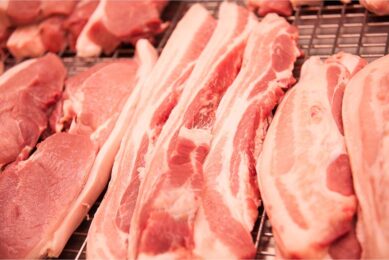
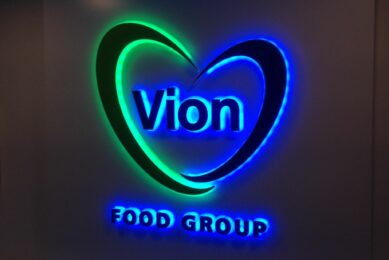
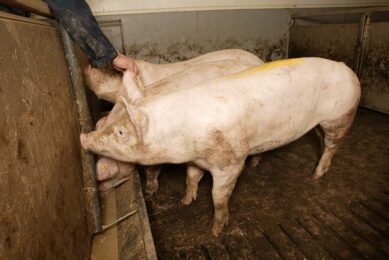
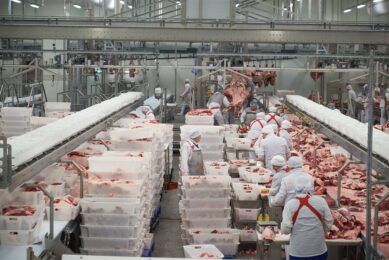





 WP Admin
WP Admin  Bewerk bericht
Bewerk bericht